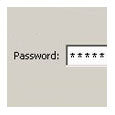Malware-Infected CD Mailing was Part of Pen Test
The malware-infected CDs that were mailed to some credit unions may have been part of a penetration test designed to gauge whether an employee would run the software. The SANS Internet Storm Center says it was notified by a representative from Microsolved that the mailing was part of an authorized pen test.














